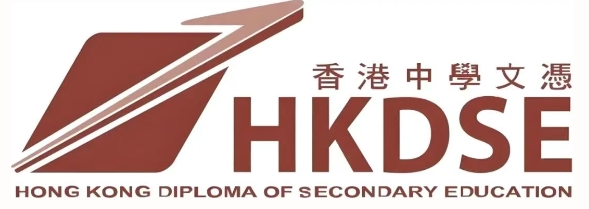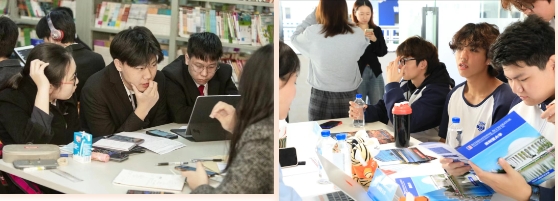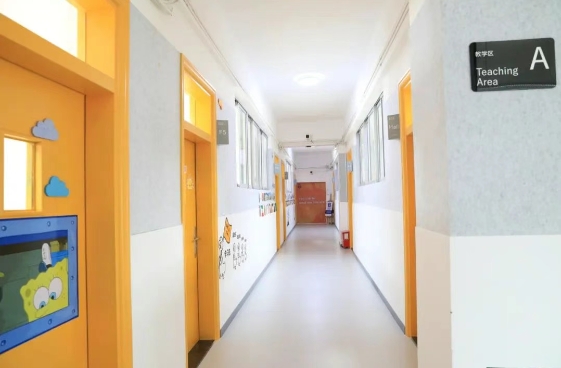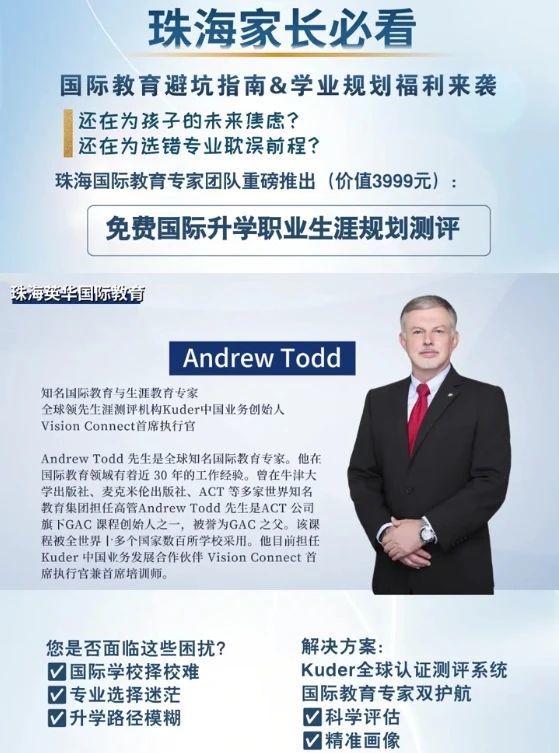The Junior Middle School Entrance Examination is over, a new starting point| Understand DSE and A-Level, open the new door to international education
2025-07-11
Preface
Dear incoming high school students and parents, hello! The hard work of the junior high school entrance examination is over, and now is an important time to plan for future high school studies and university pathways. If you are considering exposing your child to a more international education and preparing for future admission to universities in Hong Kong, mainland China, or overseas, then the Hong Kong Diploma of Secondary Education (DSE) and the General Certificate of Education Advanced Level (A-Level) are two pathways worth exploring. They each have their own characteristics and are suitable for different students.
DSE: Using your familiar Chinese, heading towards the world

One of the biggest advantages of DSE is that it understands the language background of Chinese students. Apart from the English subject itself, all other subjects, such as mathematics, physics, chemistry, history, economics, etc., can be studied and examined in Chinese. What are the benefits of this?

- Easier learning: Children can use their most familiar mother tongue to understand complex knowledge points, especially in science learning. Without having to overcome the language barrier first, they can grasp the core content faster.
- English scores are "multi-purpose": The English subject scores of DSE are recognized by many universities worldwide, including prestigious universities in Hong Kong, the UK, and Australia. This means that if you do well in DSE English, you often don't need to take IELTS or TOEFL separately when applying to these universities, saving time and effort.
- Flexible course selection: DSE requires studying several core subjects (Chinese, English, Mathematics, Civic and Social Development), and then selecting several elective subjects that you are good at or interested in. In this way, children can, to a certain extent, make use of their strengths and avoid their weaknesses, and make the most of their advantageous subjects.
Of course, the English requirements for DSE are relatively high, requiring children to have a good English foundation and continuously improve their academic English ability (such as reading, writing, listening to lectures, and taking notes). This is an aspect that requires careful preparation when choosing DSE.
A-Level: Focus on your strengths, learn more deeply

The design concept of A-Level is quite different. It doesn't require you to excel in every subject, but rather allows you to concentrate on mastering 3-4 subjects. This characteristic is particularly suitable for students who have obvious advantages in certain subjects or are relatively weak in some subjects (students with uneven academic performance).
- Get rid of the burden of "weaknesses": If a child is particularly strong in science (for example, excellent in mathematics, physics, and chemistry), but relatively weak in humanities (such as Chinese language and history), then in A-Level, he/she can choose a science combination only, without having to worry about subjects they are not good at. Conversely, if humanities are their strength, they can focus on choosing a humanities combination.
- Smooth transition in science: For students who are good at science, the content of mathematics, physics, and chemistry in A-Level is largely an extension of the domestic junior high school foundation, making it feel familiar and coherent.
- Less exam pressure: A-Level exams are not a one-off event. They are divided into different modules (units) for examination, allowing students to complete a portion and take the exam for that portion. Moreover, if a certain subject or module is not done well, only that subject or module can be retaken, and the scores of other subjects that have been done well can be retained. This gives students more opportunities for adjustment and improvement.
A-Level is taught and examined entirely in English, and also has English proficiency requirements. However, if a child chooses a science combination, the requirements for English writing and expression will be relatively lower than for a humanities combination, mainly focusing on comprehension and application.
DSE or A-Level? The key is to see which path suits the child

There is no absolutely "best" curriculum, only the choice that is "most suitable" for the child. When making a decision, you can focus on these aspects:
The child's academic characteristics:
If the child's grades are relatively balanced, or if their science is good but their English needs improvement, the Chinese teaching environment of DSE can provide a transitional advantage.
If a child excels in certain subjects (such as a science whiz or humanities expert), but struggles significantly in other subjects (uneven academic performance), then the A-Level "focus on advantageous subjects" model may be more suitable, allowing the child to shine in their strengths.
The child's English level:
Both require English proficiency. DSE English not only requires language skills (listening, speaking, reading, and writing), but also emphasizes academic application and critical thinking; A-Level is entirely taught in English. Assess the child's current English foundation, as well as their confidence in improving their English and the time commitment involved.
Future academic goals:
Do you mainly want to apply to universities in Hong Kong? Or do you want to go to the UK, Australia, or other countries? Different curricula have slightly different levels of recognition and application advantages in different regions.
We are here to help you find the most suitable path
It's normal to feel confused when faced with choices. We understand the concerns of parents and students. In order to help everyone understand DSE and A-Level more clearly and make more informed decisions, we specially provide:
- Free one-on-one consultation: Let's sit down and chat, learn more about the child's learning situation and future plans, and we will help you analyze which curriculum is more suitable.
- Personalized course selection suggestions: If you have decided on a direction, we can provide specific course combination suggestions based on the child's strengths and interests.
- Professional career planning: If the child doesn't have a direction for the future and can't find their goals, we have professionally certified career planning teachers to help the child.

The junior high school entrance examination is the end point, but also the starting point of a new journey. Choosing between DSE and A-Level is paving the way for the child's studies and university entrance in the next few years. The important thing is to find a path that allows the child to make the most of their strengths, learn confidently, and ultimately reach their ideal university.
Don't let your questions linger. Welcome to contact us to schedule an in-depth consultation or attend our briefing session. Let us use our expertise and experience to help you see the direction clearly and plan a broader future for your child.






